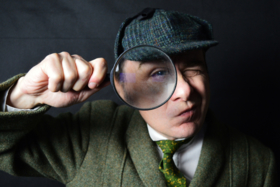Brain and reality: examples of popular distortions
We all know that the human brain is a unique mechanism that can be compared with a very powerful computer. But, nevertheless, sometimes it fails. In this article we will give some examples of cognitive distortions of reality.
Need for absolute correctness
Many of us are familiar with the situation when in an active dispute, convinced that our opinion is the only correct one, we begin to defend it even more zealously. The thing is that it is very difficult for a brain that is convinced of its correctness and truth to change its opinion.
Warm and cool colors
Intuitively, our brain perceives red as warm and blue as cold. The study on this topic was conducted, in it people were handed out drinks of the same temperature. But in glasses of red and green colour. And what would you think? The drinks that were served in the green glass seemed cooler.
False memories do exist
The human brain is able not only to distort reality, but also to present invented memories as reality. This term even has a name - confabulation. In this case, the person really remembers those events that never happened in his life.
Vision complements the taste
Another study by scientists. Some people were asked to rate white wine. But before the experiment, the drink was painted red. As a result, a significant percentage of people from the group caught in taste the notes characteristic of red wine.
Did not notice the elephant
For such cases, scientists also came up with the term and it is called attention blindness. It lies in the fact that if a person concentrates on one thing, he may not notice the others, even if they happen right in front of his eyes. This psychological feature is actively used by illusionists in their ideas.
The Theory of Probability is Not For The Brain
Our brain believes: if 5 times the coin fell on the palm with the head side, then tails will surely appear with the sixth attempt. According to the theory of probability, the chance remains the same and it is one to one. But the brain actively opposes this statement. As a result, we have an inner feeling that we are about to get lucky. It often occurs during gambling.











